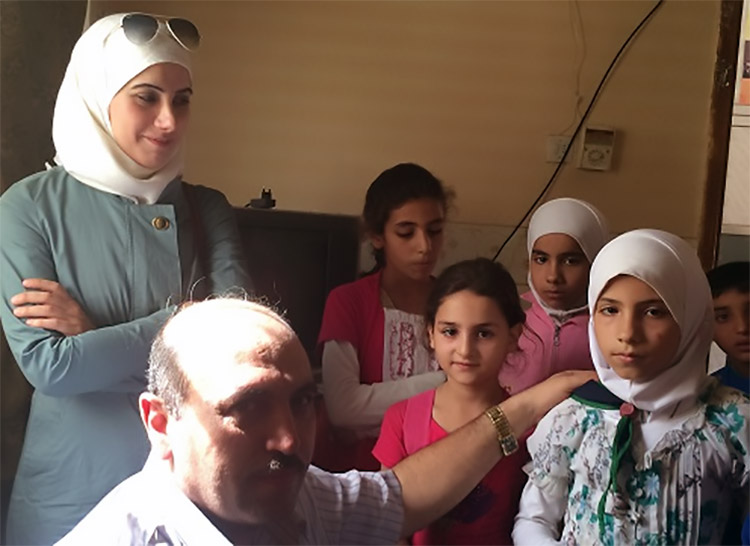
15 November 2021- As WHO is dedicated to alleviating the suffering of the greatest number of people, particularly those most in need, it works with the MENTOR Initiative in northwest Syria – where IDP Camps house dense concentrations of displaced Syrians living in squalid conditions – to combat Leishmaniasis, a parasitical disease spread by the bite of infected sandflies.
Those marginalized by conflict and poverty -- and particularly the children among them - are the most vulnerable to the disease due to the overcrowding and poor sanitation characteristic of their living conditions. Come autumn, female sandflies pick up the Leishmaniasis parasite and transmit it to humans, their bite causing great damage, especially to the soft skin tissue of children.
In August 2021, a 60-year-old father brought his eight-year-old daughter to the MENTOR-supported PHC facility in Hazano, in Idlib Governorate’s Maaret Tamsrin sub-district. The girl’s face showed severe lesions with inflammation of the skin. For two months, she had been receiving herbal treatments only, and her father grew concerned with her condition which worsened by the day. If the lesions continued to grow, they would cause permanent deformity to his daughter’s face.
The lesions were diagnosed at the Hazano PHC as caused by cutaneous Leishmaniasis. Due to the severity and location of the lesions, an instant treatment of daily intramuscular Glucantime injections was commenced and prescribed to continue for 28 days. Her blood was monitored to ensure she suffered no side effects as a result of the treatment. The photographs below -- taken at initial presentation, then at 1 week, 3 weeks and 45 days from diagnosis – reveal the progression of the girl’s improvement, which occurred quickly once her treatment began.
The father brought his daughter back to the MENTOR-supported PHC facility in Hazano two weeks after the conclusion of her treatment for a follow-up appointment to confirm that the lesions were completely cured. As the photos show, this free and absolutely vital service supplied by the MENTOR Initiative saved this young child. Not only did Leishmaniasis cause lesions which would have psychologically scarred the child for life, but it is also a potentially fatal disease if left untreated. Persons suffering severe cases have perished under Leishmaniasis, either due to the disease itself or to the complications brought about by expanding cutaneous lesions.
WHO extends its sincere gratitude to its partner, the MENTOR Initiative, for the splendid work it carries out day to day in northwest Syria.
For more information, please contact:
Grattan Lynch
Communications Officer
E-mail:


